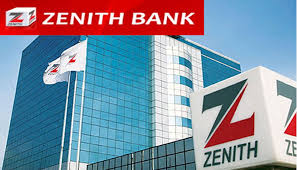Global financial and business environment has continued to unfold even in the face of uncertainties that envelope current economic realities. We continue to witness arrays of meaningful and life changing packages cutting across the way things are done. In recent times, the means of exchanging and trading as well as payment for goods and services have all been impacted. This is courtesy of innovations in telecommunications. However, as it stands, developed nations in their quest for better society re-engineer and re-tool the usage of telecommunication technology to achieve these feats. That is why, it has been said that telecommunication has allowed the world to be moving far in speed of points, and no nation can afford to be left behind.
The foregoing speaks to the intent of the recently launched ‘Afrigo’ National Domestic Cards of Nigeria by the Central Bank of Nigeria (CBN) in collaboration with Nigeria Inter-Bank Settlement Systems (NIBSS) and the Bankers Committee.
This latest initiative is part of the apex bank’s pragmatic ways of strengthening the national payments system through the implementation of a domestic card scheme. Afrigo is in line with the National Payments System Strategy of the CBN. This is among other initiatives of the apex bank such as the Bank Verification Number (BVN), Real Time Gross Settlement System (RTGS), Shared Agent Network Facility (SANEF), Regulatory Sandbox, Open Banking and the eNaira.
Speaking at the unveiling of the country’s domestic card scheme, the CBN governor, Godwin Emefiele, said the event signals another major step in the drive to ensure a thriving and competitive payment landscape in Nigeria. According to Emefiele, “Given the limited usage of cards by Nigerians and in a bid to deepen penetration, the bank actively promoted the national domestic card scheme which will be accessible to all Nigerians and also address our local peculiarities. In addition, Afrigo card “scheme is therefore an important plug in the gap that has remained with us since the cash-less policy was introduced”.
The CBN cashless policy started in 2012, as the core drive to strengthen the national payment system and deepen the usage of electronic platforms in Nigeria. The cashless policy has created value, engendered competition and attracted investment into the Nigerian banking and payments ecosystem. That is why the likes of Visa and Mastercard have dominated the card payment market in Nigeria. And they would remain convenient, particularly for international transactions. On the other hand, Afrigo as a national domestic card is expected to serve the unbanked market population and increase competition within the payment landscape.
However, the question that Nigerians may ask is, why national domestic cards now? The answer to this question lies within the benefits national domestic cards provide. For instance, it ensures the capacity to reduce Nigeria’s reliance on foreign-owned financial services companies. Moreover, across the world, it is a treading monetary policy that embraces Fintech innovation and financial penetration and inclusion service. Hence, joining countries like China, Russia, Turkey and India which have launched similar national domestic card schemes to us as a nation is worthwhile.
It will also solve the challenge of “proliferation of products, channels and participants with significantly increased foreign direct investments into the Nigerian payments space without the benefits of helping us harness the unbanked and underbanked population for a transformative financial penetration and inclusion system. In 2021, card transactions carried by Nigerians amounted to $18.2 billion. Yet, there is much ground to be covered as millions of Nigerians are without payment cards to consummate transactions.
Going forward, the “Afrigo” national domestic card is out for a robust, ecosystem efficient and safe national payments system and welcomes innovation from both domestic firms and foreign investors.
What needs to be done. Instructively, this Afrigo national domestic card is strategic to enhance the smooth operation of the cashless policy of the CBN. However, measures must be put in place to reduce the challenges of high cost of card services, and to address infrastructure challenges of the Nigerian micro and macro payment ecosystem.
According to Dr Tope Fasua this is another “Leap in Financial Innovation…as the national domestic card scheme bodes opportunities for our economy to integrate the informal segment of our economy”. Hence, we must embrace and can no longer neglect.
Olamilekan, political economist, writes from Luvu, Masaka, Karu local government area, Nasarawa state, via [email protected]
08107407870




